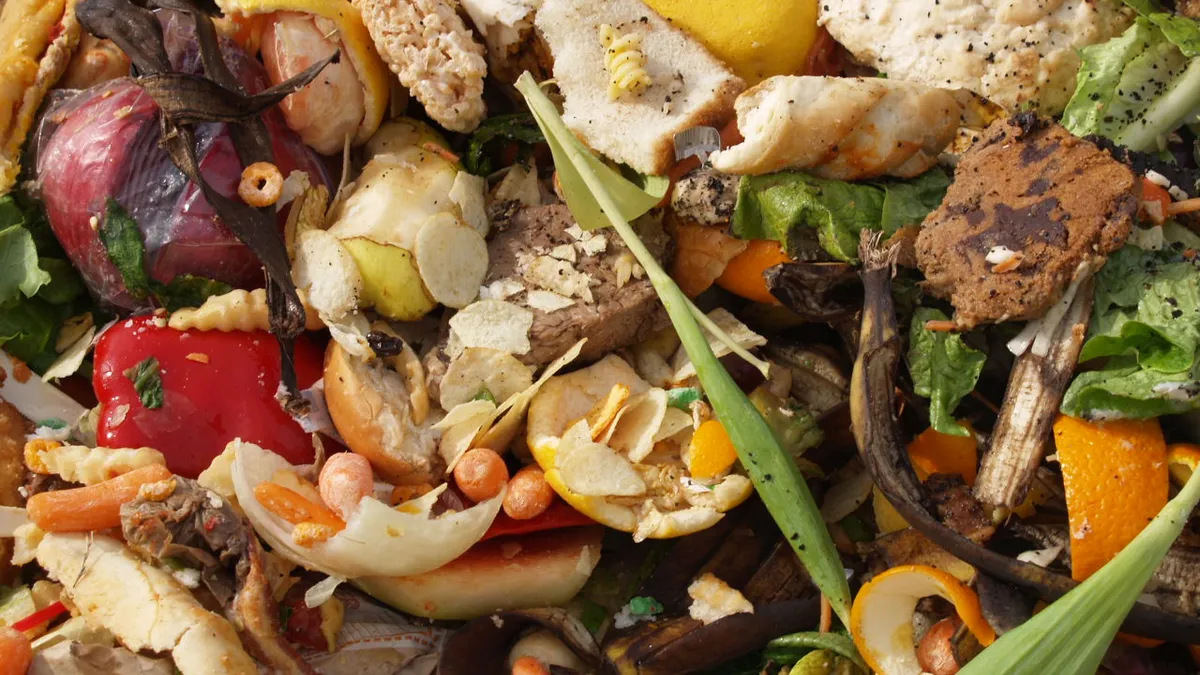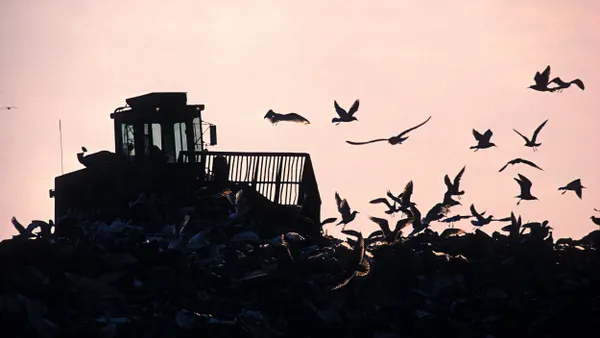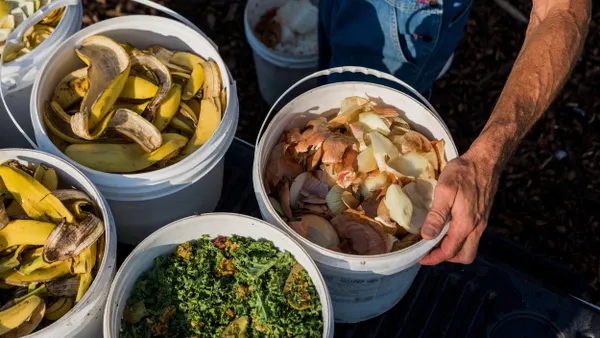Dive Brief:
- The New Jersey Department of Environmental Protection (NJDEP) recently released a draft plan to reduce food waste 50% by 2030. According to rough calculations, the agency estimates 1.46 million tons of food waste was generated in the state during 2017 and more than 89% of that was disposed of.
- NJDEP proposes legislation for the establishment of a permanent Food Waste Reduction Council. Action areas could include research; data collection and analysis; new legislative, regulatory or administrative proposals; promotional mechanisms to raise public awareness and general food waste trends.
- Council membership would include representatives from government, industry, nonprofits, trade associations and other relevant sectors. NJDEP also proposes dedicating 50% of existing state Recycling Enhancement Act (REA) research grant funding to support the council's work.
Dive Insight:
New Jersey's 2030 food waste reduction goal comes from a law signed by then-Gov. Chris Christie in July 2017. This was modeled in part after parallel U.S. and U.N. goals to halve food waste by the same date.
That law required NJDEP to develop a plan within one year, in consultation with the state's Department of Agriculture, and hold three public hearings to accept feedback.
Last fall, NJDEP told Waste Dive the already delayed plan would be coming soon. It wasn't officially released until August 2019. NJDEP declined an interview with Waste Dive about the draft plan.
As previewed by the agency last year, the plan generally follows best practices created by other government agencies and groups working in the food waste space.
NJDEP indicates it spoke with representatives from the U.S. EPA and five other states, as well as key national groups such as ReFED, the Natural Resources Defense Council and the Harvard Food Law and Policy Clinic.
Source reduction is emphasized as the most preferable option, with consumer education and regulatory clarity around topics such as date labeling seen as a key priority.
In the short-term, NJDEP has various plans for education and collaboration with existing groups doing work on the topic. Long-term, the agency aims to implement regular waste composition audits to improve data quality, conduct new research, work with other state institutions and organize events.
While this is all similar to efforts in other states, the plan does raise questions about possible overlap with existing initiatives and how food waste recycling opportunities will be prioritized.
Some have questioned whether the proposed council is redundant, given that Gov. Phil Murphy just signed a law in May to create a New Jersey Food Waste Task Force. NJDEP's plan describes the two groups as "complimentary," essentially saying the task force is more oriented toward consumer-level solutions while the council would have a broader scope that also includes food production and distribution.
Another key question not directly addressed in the plan is what role landfills should play.
Murphy recently vetoed a bill that would have considered landfills with gas capture systems, as well as incinerators, viable destinations for food waste recycling. NJDEP's plan states – in line with the EPA's food waste hierarchy – that once source reduction has been maximized "composting, anaerobic digestion, or recycling is preferred to avoid landfilling." Multiple county landfill operators in New Jersey would disagree and are sure to raise their concerns during the feedback process.
NJDEP is in the process of conducting public hearings on the draft plan this month. Comments are being accepted on the plan through Sept. 27.












